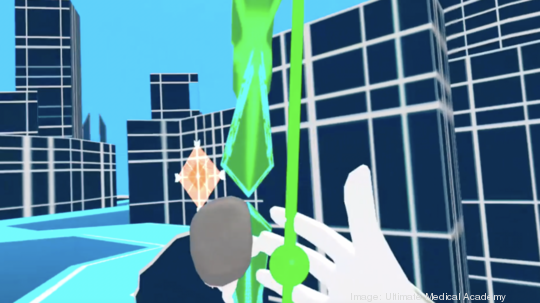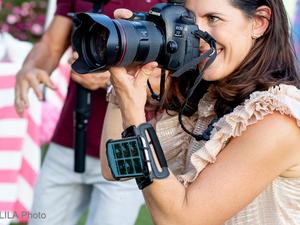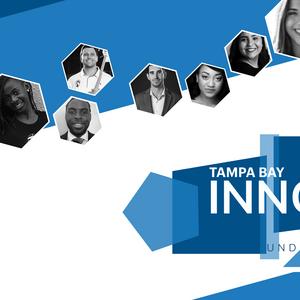
A Clearwater medical education institution is using its own virtual reality tech beyond the gaming world to address biases in hiring.
Ultimate Medical Academy, a nonprofit higher education institution focused on health degrees, created its own virtual reality technology roughly two years ago. The goal is to help about 100 corporate partners overcome internal bias during the hiring process. But while the problem they're addressing is heavy, the game is a lighthearted, fun activity.
"The game play isn’t a new technology, but this use isn't leveraged a lot," said Brandi Yates, senior director of workforce solutions at UMA. "It's like how the 'Go Fish' card game teaches you numbers. This is playing a game and not realizing you're learning."
First, an individual or team gets shown candidates who aren't considered "perfect" — whether they're a new college grad, have a gap in employment or have no former experience in the industry.
Once the team chooses their candidate, they get taken to a training arena to shoot virtual arrows at a target while AI bot "CHARA" disparages the chosen candidate.
"It's to mimic how a candidate feels in the interview process and trying to get in their shoes, showing how it feels to go throughout the interview process," Yates said. "And when you hit a target, you're destroying one of the biases against you."
Beyond showcasing that less than perfect candidates can still make good employees, it brings to light team members' thought processes when choosing a potential hire. For example, if a team all chooses the same candidate, instead of being aligned, it could show they're all hiring the same exact candidate.
"If you have problems and everyone looks at it the same, it won’t get solved," said Ellie Glowa, senior workforce solutions specialist at UMA. "When companies talk about a 'culture fit' — we’re trying to pivot them to a culture add."
This is the second VR experience UMA has built, with the first focused on teaching empathy in health care. Their VR technology is currently only available for UMA partners to use, but Glowa and Yates said they're looking to expand to the general public eventually.
"Our potential for virtual reality is boundless, especially when it comes to soft skills," Glowa said. "Virtual reality gives you the space to move beyond the definition of bias or empathy and practice it in a safe space. This is just the beginning for us."








